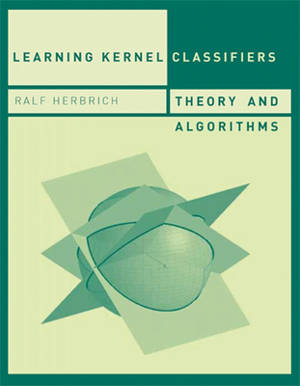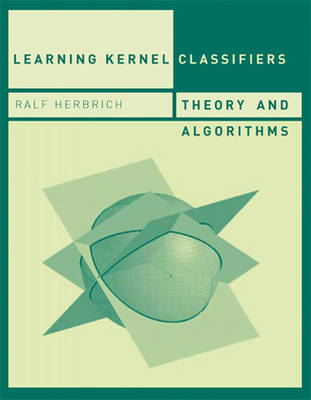
En raison d'une grêve chez bpost, votre commande pourrait être retardée. Vous avez besoin d’un livre rapidement ? Nos magasins vous accueillent à bras ouverts !
- Retrait gratuit dans votre magasin Club
- 7.000.000 titres dans notre catalogue
- Payer en toute sécurité
- Toujours un magasin près de chez vous
En raison de la grêve chez bpost, votre commande pourrait être retardée. Vous avez besoin d’un livre rapidement ? Nos magasins vous accueillent à bras ouverts !
- Retrait gratuit dans votre magasin Club
- 7.000.0000 titres dans notre catalogue
- Payer en toute sécurité
- Toujours un magasin près de chez vous
Description
An overview of the theory and application of kernel classification methods. Linear classifiers in kernel spaces have emerged as a major topic within the field of machine learning. The kernel technique takes the linear classifier--a limited, but well-established and comprehensively studied model--and extends its applicability to a wide range of nonlinear pattern-recognition tasks such as natural language processing, machine vision, and biological sequence analysis. This book provides the first comprehensive overview of both the theory and algorithms of kernel classifiers, including the most recent developments. It begins by describing the major algorithmic advances: kernel perceptron learning, kernel Fisher discriminants, support vector machines, relevance vector machines, Gaussian processes, and Bayes point machines. Then follows a detailed introduction to learning theory, including VC and PAC-Bayesian theory, data-dependent structural risk minimization, and compression bounds. Throughout, the book emphasizes the interaction between theory and algorithms: how learning algorithms work and why. The book includes many examples, complete pseudo code of the algorithms presented, and an extensive source code library.
Spécifications
Parties prenantes
- Auteur(s) :
- Editeur:
Contenu
- Nombre de pages :
- 384
- Langue:
- Anglais
- Collection :
Caractéristiques
- EAN:
- 9780262546591
- Date de parution :
- 01-11-22
- Format:
- Livre broché
- Format numérique:
- Trade paperback (VS)
- Dimensions :
- 178 mm x 229 mm
- Poids :
- 607 g

Les avis
Nous publions uniquement les avis qui respectent les conditions requises. Consultez nos conditions pour les avis.






